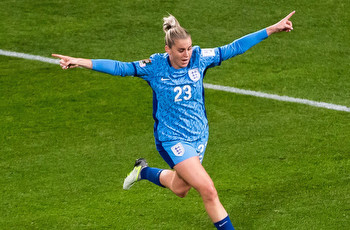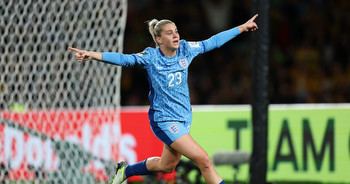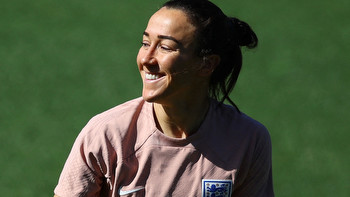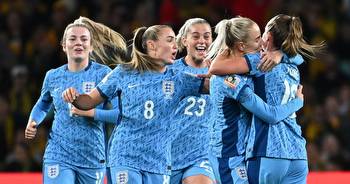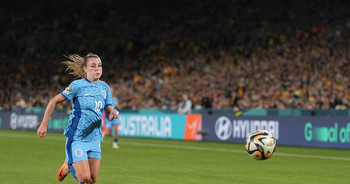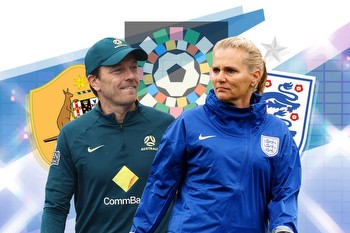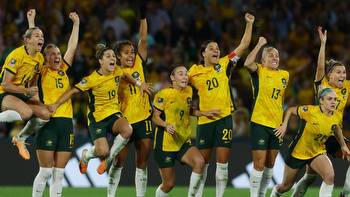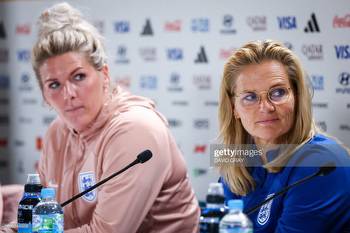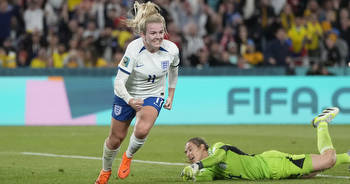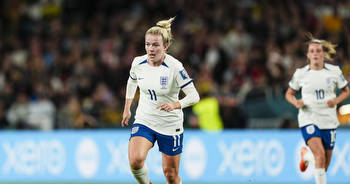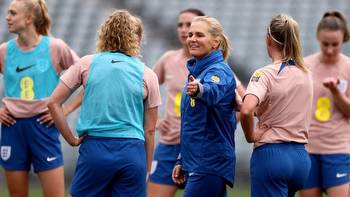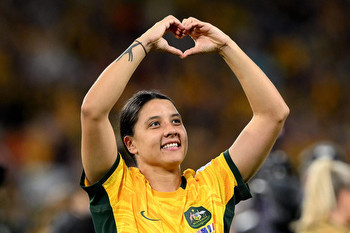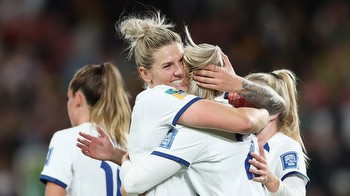Women's World Cup: Alessia Russo, Lauren Hemp lead England to 2-1 win over Colombia in quarterfinals
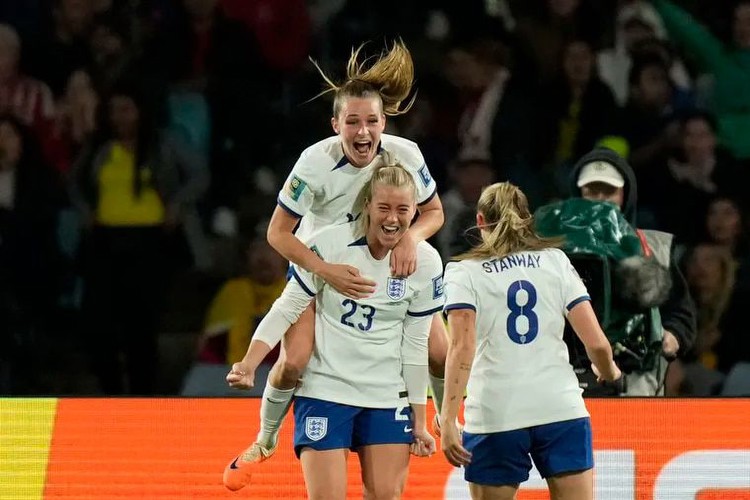
SYDNEY, Australia — No country in this great, big soccer world launches hype trains like England, especially with the country’s national teams.
Most of the time, especially on the men’s side of things, just one victory at a major tournament sends the public and media into a frenzy of noise, passion, and back-page headlines the size of players’ cleats.
So it’s surprising that with the England women’s team at this World Cup, there hasn’t been as much hype so far as a lot of people expected. While the Lionesses undoubtedly were among the pretournament favorites, there’s been less shouting about them during the tournament than you might expect regarding the reigning European champions.
But that will change now, after a 2-1 comeback win over Colombia at Stadium Australia set up a sizzling semifinal against the co-host Matildas on Wednesday on the same field (6 a.m., Fox29, Telemundo 62, Peacock). Australia advanced past France on penalty kicks (7-6) after playing to a scoreless draw.
The Lionesses didn’t just beat the Cafeteras on the field. They quieted a raucous sea of Colombian fans in yellow, red, and blue that dominated the packed crowd of 75,784. It was their country’s first trip to any men’s or women’s World Cup quarterfinal, and the first time Colombia was the last team standing from the Americas at any men’s or women’s World Cup.
Let that last part sink in for a moment. We aren’t just talking about the U.S., Canada, and Brazil on the women’s side. We’re also talking about the men’s teams of Brazil, Argentina, Uruguay, Mexico, and every other nation from the west side of the Atlantic Ocean that’s ever made a deep run on soccer’s biggest stage.
This was the first time Colombia surpassed them all.
Russo repels Colombia’s charge
For a moment, it seemed the underdogs might surpass England, too. Leicy Santos opened the scoring with a gorgeous chip in the 44th minute, and a tidal wave of noise erupted from the stands.
It was the first time England trailed in this tournament, and its fans were shocked. England’s players, however, kept firm, and they were rewarded for it in the seventh minute of first-half stoppage time when Colombia goalkeeper Catalina Pérez spilled a save and Lauren Hemp pounced on it to equalize.
That sent a fleet of red-and-white St. George’s crosses flying high — and at a huge moment too. American referee Katja Koroleva blew her whistle for halftime seconds after play resumed, allowing England to go to the locker room with all the momentum. The dejection among Colombia’s players was clear for all to see.
Colombia’s fans did their best to lift their team early in the second half, chanting “¡Sí se puede!” (Yes we can!) and singing “¡Vamos, vamos Colombia — esta noche, tenemos que ganar!” (Let’s go, let’s go Colombia — tonight, we have to to win!).
But it was to no avail. Alessia Russo, one of three England players who played college soccer at North Carolina (as did Netherlands-born manager Sarina Wiegman), broke down the right wing in the 63rd minute and fired in a perfectly placed low shot for a 2-1 lead.
That, plus the lingering effects of a hit to the face suffered by Pérez, was too much for Colombia to overcome. Pérez was subbed out in the 67th, and England finished off a win that set up an epic semifinal clash with co-host Australia.
Here comes the hype
If England winning wasn’t enough on its own merit to fire up the hype machine, facing the Matildas surely will. Australia and England have one of the world’s great rivalries across a range of sports, from cricket to rugby to debating the merits of monarchy. (Unlike the United States, Australia still officially is part of the British Commonwealth.)
Such talk doesn’t come as naturally to Wiegman, and not just because of her roots. She is as calm under pressure as you’ll ever see, and that rubs off on her players.
“A lot of it, definitely,” said forward Chloe Kelly, the title game star of England’s European Championship triumph last year.
“I don’t think we were stressed,” Russo said, later adding, “I don’t think we ever panicked.”
That is the mark of a potential champion in the making.
“I think that’s one of the strengths of this team, that we do stay calm,” Wiegman said. “We conceded the goal, and you don’t see any panic. We just tried to speed up the game even more, create chances, and score goals. So far, I think we have done that really well, and I hope we keep doing that.”
(Alas for U.S. women’s national team fans, it is not the mark of Vlatko Andonovski’s likely successor. Wiegman is under contract with England through 2025, or else she’d easily be the top candidate.)
But it’s OK to enjoy a little bit of the hype at a moment like this, too. This is the fifth straight major tournament where England has made the semifinals — the 2015, ‘19, and ‘23 World Cups and the 2017 and ‘22 Euros — and the Lionesses might be the favorites to win it all. Spain and Sweden will contest the other semifinal Tuesday in Auckland (4 a.m., Fox29, Telemundo 62, Peacock).
“We’re definitely enjoying it now,” midfielder Ella Toone said. “But we’re a really focused team, and we want to make sure that we’re 100% right going into the next game. We’ll enjoy the moment now, but our focus now is on the semifinal.”
And what does Wiegman think of what’s coming next?
“I just think it’s going to be really big,” she said after an English reporter asked what she knows about the England-Australia rivalry’s history. “But now I’ve had a couple of questions about that, so it’s probably going to be bigger than I imagined now.”
Indeed it is. And from Chapel Hill, N.C., to London to Sydney, the whole world will be watching.
Your subscription powers our newsroom and journalism like this. Support our work by visiting inquirer.com/tannenwald and receive unlimited access to Inquirer.com, The Inquirer App, and e-Edition at a special price: $1 for three months.

